
Genome’s 3D Shape: A Living Computer that Enabled Complex Life
October 2025 New research reveals the second language of the human genome – one not written in its chemical letters but in its physical shape.

October 2025 New research reveals the second language of the human genome – one not written in its chemical letters but in its physical shape.

July 2025 Restoring cellular memory prevents cancer cells’ ability to adapt to evade treatment
from Northwestern Engineering

January 2025 The Human Genome Operates Like A “Dynamic Computer” New research shows how the 3D genome operates as a self-assembling, learning computational system
from Northwestern University News

September 2023 Developed at CPGE and designed for use at home or in a primary care office, the novel test is based on a new paradigm for cancer detection that uses artificial intelligence-enhanced optical nanosensing of alterations in the chromatin (genome) structure of cells – changes that are associated with the earliest stages of carcinogenesis and cancer progression.
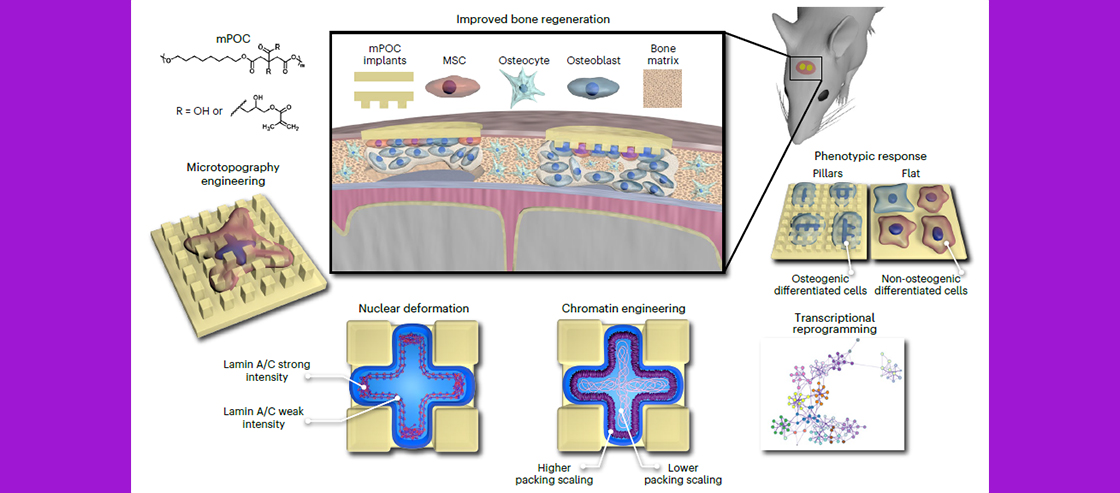
June 2023 The field of bone implants has taken incredible strides thanks to technological innovations that allow for stronger grafts that are easier to install. Yet even with these advances, there are still risks involved in such procedures. Implants can be loosened following operations, for example, which can lead to costly surgical revisions that lengthen the recovery process for patients. New research from an interdisciplinary team from Northwestern Engineering’s Center for Advanced Regenerative Engineering (CARE) and Center for Physical Genomics and Engineering (CPGE) could reduce the likelihood of these painful, expensive complications.
from Northwestern Engineering
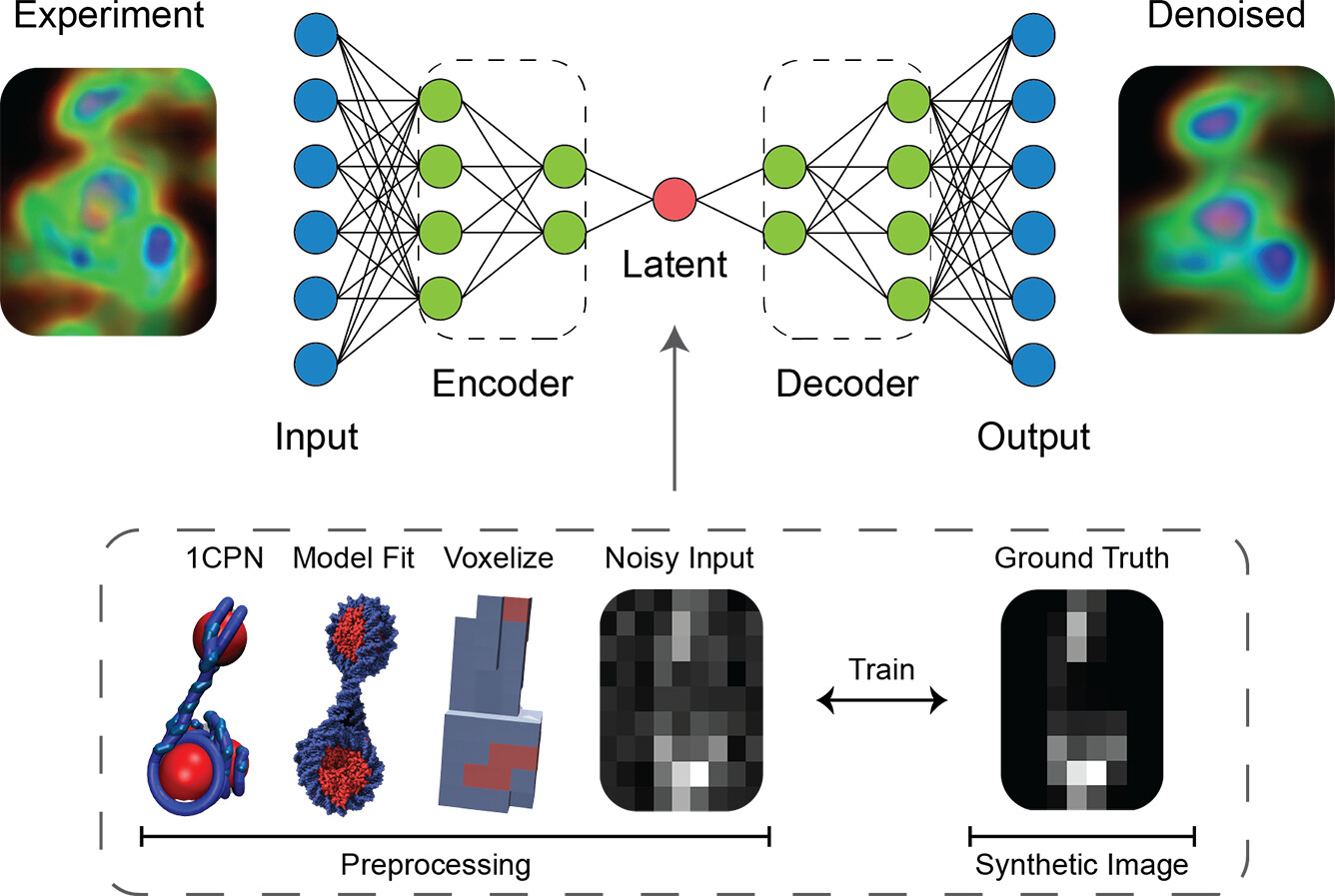
June 2023 New research from a collaborative project between CPGE and the Ferguson and de Pablo labs at the University of Chicago was published on June 5, 2023 in ACS Central Science. By leveraging convolutional neural networks and molecular dynamics simulations, researchers from CPGE and the University of Chicago developed a denoising autoencoder (DAE) capable of postprocessing experimental ChromSTEM images to provide nucleosome-level resolution. Notably, no evidence for the 30 nm fiber, which has been suggested to serve as the higher-order structure of the chromatin fiber, was found.
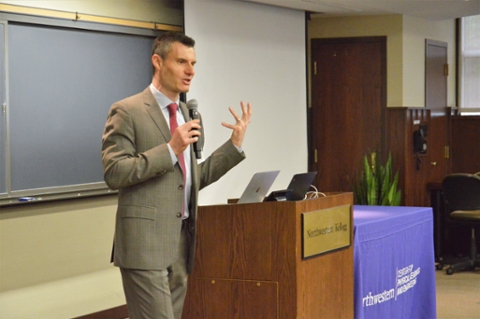
April 2023 Held April 21 at Wieboldt Hall on Northwestern’s Chicago campus, the symposium is the flagship event of the Center for Physical Genomics and Engineering, which explores research in manipulating chromatin structure to treat disease and engineer living systems to overcome health and environmental challenges.
from Northwestern Engineering

March 2023 The first of CPGE's new seminar series, the Monthly Seminar on Physical Genomics, will be held via Zoom Friday, March 31, 2023 from noon to 1pm CT. Dr. Susan Gasser of the Friedrich Miescher Institute for Biomedical Research will give a lecture titled "Chromatin and Nucleosome Density: How DNA Damage Response Alters Chromatin Dynamics". Registration is free at https://tinyurl.com/cpge23

February 2022 CPGE was recently awarded multiple major grants from the National Institutes of Health to establish the NU Center for Chromatin NanoImaging in Cancer (U54), and the Physical Genomics Training Program (T32).
from Northwestern Engineering
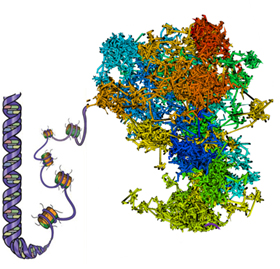
January 2022 The inaugural Physical Genomics Training Program Seminar will take place Tuesday, February 8 at 1pm CT via Zoom. Dr. Vadim Backman, Sachs Family Professor of Biomedical Engineering and Medicine and Director of the Center for Physical Genomics and Engineering, and PGTP Administrator Dr. Jayms Peterson will provide an overview of the NIH T32 Physical Genomics Training Program and discuss some exciting developments and the groundbreaking potential of this fascinating new field of convergent science.

January 2022 A team of researchers from MIT, the University of Pennsylvania, Dana-Farber Cancer Institute, MD Anderson Cancer Center and CPGE has received a $7.8 million, five-year grant from the National Institutes of Health (NIH) to join an inaugural network of centers that NIH has established, called the Metastasis Network (MetNet), to study how metastasizing tumor cells adapt to mechanical stresses. The team includes researchers from multiple institutions, including Vadim Backman of the Center for Physical Genomics and Engineering at Northwestern University, who will provide imaging and nanosensing expertise for the projects at the new Center.
from MIT News

September 2021 The National Institutes of Health have awarded the Center for Physical Genomics and Engineering a T32 grant to establish the Physical Genomics Training Program, the first T32 program in the United States to be focused on convergent training in the field of physical genomics.

January 2021 Using a combination of breakthrough imaging techniques, new research from Northwestern Engineering sheds light on how cells – including cancerous ones – are constructed at the genomic level and how that structure affects their functionality and ability to adapt to external stressors.
from Northwestern Engineering

February 2020 Vadim Backman, the Director of the Center for Physical Genomics and Engineering, has named Jayms Peterson as the new Senior Director of Operations and Outreach.
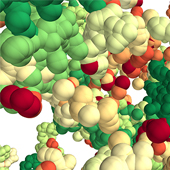
January 2020 Knowledge could help scientists understand chromatin’s role in cancer, other diseases.
from Northwestern Now
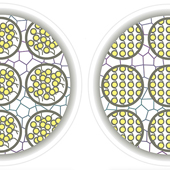
January 2020 Discovery could help researchers design new chromatin-based therapeutics.
from Northwestern Engineering
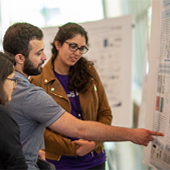
June 2019 At symposium celebrating launch, researchers shared vision for burgeoning field
from Northwestern Engineering
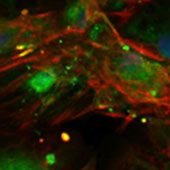
September 2018 The grants, which total $5.4 million, will provide critical support for fundamental research for professors and their collaborators across Northwestern.
from Northwestern Engineering
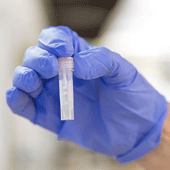
March 2018 Biomedical engineer Vadim Backman develops more sensitive cancer diagnostics and more effective treatments.
from Northwestern Now
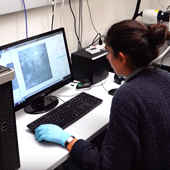
November 2017 For the first time, researchers control cells’ chromatin to prevent cancer from adapting to treatment.
from Northwestern Engineering

February 2017 The award-winning paper reports for the first time that DNA blinks; the finding could lead to label-free, super-resolution nanoscopic imaging.
from Northwestern Engineering
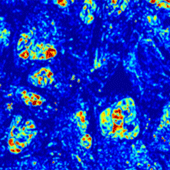
October 2016 New live-cell imaging technique allows researchers to study chromatin’s dynamic processes, including its role in cancer and disease.
from Northwestern Engineering
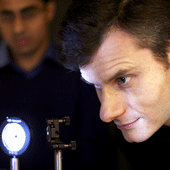
September 2016 Vadim Backman’s new screening technologies hold promise for dramatic changes in the diagnosis and treatment of cancer.
from Northwestern Engineering

September 2016 Students raised funds for an experiment that aims to find if coral skeleton architecture influences bleaching susceptibility.
from Northwestern Engineering

August 2016 Today, medicine is increasingly focused on quality of life. This talk looks at the breakthroughs, innovative practices, and new health care measures that will improve not just how long, but how well, you live.
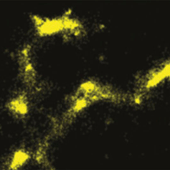
August 2016 Discovery opens door for staining-free, super-resolution imaging and expands understanding of biology.
from Northwestern Engineering
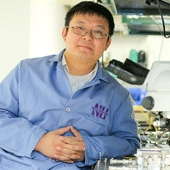
July 2016 New technology platform is able to image molecules at the nanoscale with super-resolution.
from Northwestern Engineering
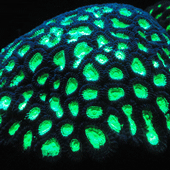
June 2016 New tool could play important role in the race to save coral reefs and in any application that relies on rankings.
from Northwestern Engineering

May 2016 Leading scientists present the details of exciting technology revolutions that promise earlier diagnoses, better treatments, longer lives, and new cures for age-old diseases.

April 2016 Northwestern researchers are the first to provide a quantitative “global index” detailing which of the world’s coral species are most susceptible to coral bleaching and most likely to die.
from Northwestern Engineering

April 2013 Research reveals surprising result from the study of 1893 World’s Fair corals using modern technology.
from Northwestern Now
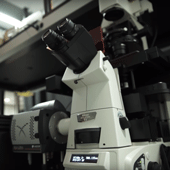
April 2013 Study results could translate into a minimally invasive early detection method.
from Northwestern Now
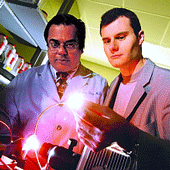
July 2007 Experimental techniques show promise in screening for one of the nation’s deadliest diseases.